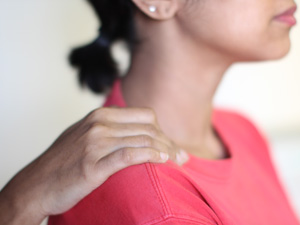Guidelines for CounsellorsBack

Healing after sexual assault and overcoming the trauma of the incident can take a long time. It may require long-term counselling of the survivor and her family.
Monica Kumar, Clinical Psychologist and Managing Trustee of Manas Foundation, says, "Rape is a dehumanizing experience where trauma is multiplied with stigma. It’s like an open wound that festers. So, the counsellor's role is crucial. Especially as one of the first few people who comes in contact with the survivor, the counsellor determines her future course. We need to tell her that we are here to support her on her way to recovery.”
It is essential, therefore, that counsellors strengthen their therapeutic practices. Here are some guidelines that could help.
Dos in a Counselling Relationship
- Believe the survivor’s story. Tell her that she did nothing wrong or shameful.
- Make sure to tell the survivor, “It's not your fault”.
- Be accepting of the way she is reacting. Project a calm, understanding, non-judgemental and supportive attitude. Be aware of and set aside your own biases and prejudices.
- Tell her that any reaction is okay—crying, screaming, panicking, pacing or silence.
- Explain to her that sexual assault can have physical and psychological consequences; however, there are no fixed signs or symptoms that a survivor will exhibit.
- Respect the survivor’s right to privacy and confidentiality. Except when legally required, do not release information about the assault.
- Listen to the survivor's fears and worries with empathy and discuss options that could help her overcome these fears and worries.
- Avoid lecturing. Rather, help the survivor and her family work through issues and make decisions with your help.
- Help the survivor regain a sense of control over her life. Identify those experiences that demonstrate her capabilities and strengths. Encourage her to use positive coping strategies that she may have used in the past.
- Help the survivor get help from other sources if needed—identify organizations, counsellors, mental health helplines, friends or others who can help her or talk to her.
- Use those treatment protocols that have the highest levels of empirical and clinical backing.
- Ensure that the identification and treatment of assault-related behaviour, thoughts and feelings are your central focus.
- Rigorously document each session and ensure that the survivor is progressively getting better.
- If there is a possibility of a suicide risk or the survivor is showing signs of a mental disorder, consider referring her to a specialist working on these issues.
Don’ts in a Counselling Relationship
- Don’t cast doubt on what the survivor tells you.
- Don’t pressure the survivor into talking about or doing things that she is not ready for.
- Don’t push for details, put words in the survivor’s mouth, overreact or look shocked.
- Don’t preach, lecture or use stereotypical or accusatory comments. For example, “Tell me about the bad man”.
- Don’t use intimidating and coercive techniques. For example, “You can go after you have answered one more question”.
- Don’t use influencing comments. For example, “Your parents believe something happened and so do I”.
- Don’t ask the survivor why she didn’t fight back. People can freeze when confronted with a terrifying situation. It may also have been the safest thing to do.
- Don’t ask the survivor why she didn’t disclose the assault sooner. She may have tried to tell someone, but may have been ignored or disbelieved. She may not have been able to understand or describe what happened to her. She may have been threatened or felt frightened to say anything.
- Don’t tell the survivor what exactly to do; help her explore options available to her.
- Don’t tell the survivor to forget about the assault or say “It happened a long time ago. Why does it suddenly bother you now?”
In consultation with Manas Foundation, a Delhi-based organization that provides counselling to survivors of rape and sexual abuse, among other key efforts. It was founded in 2000 by a group of mental health professionals in response to the growing need for community-based mental healthcare.